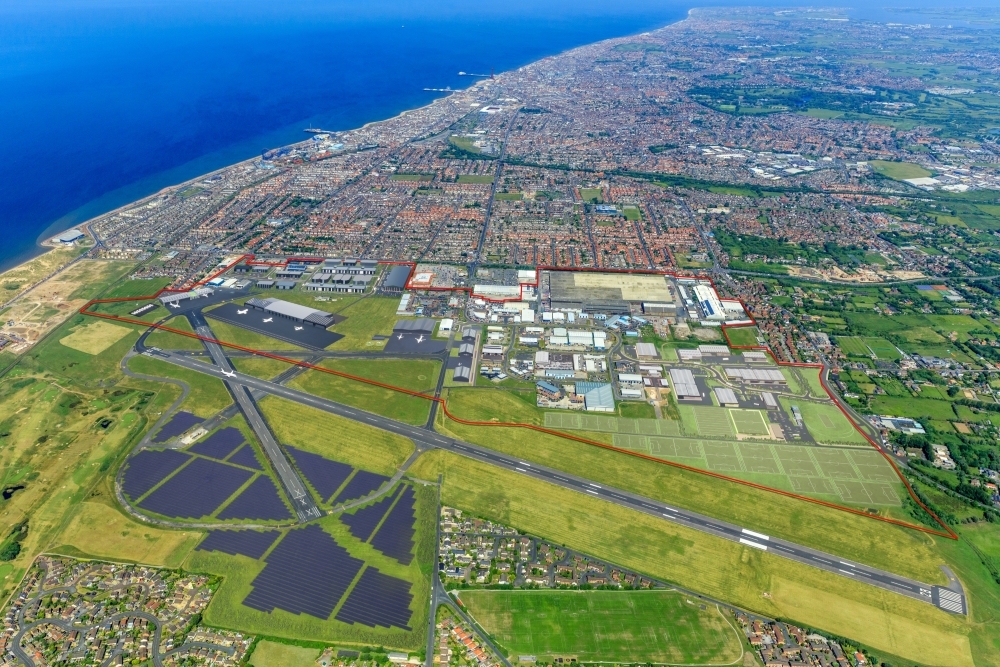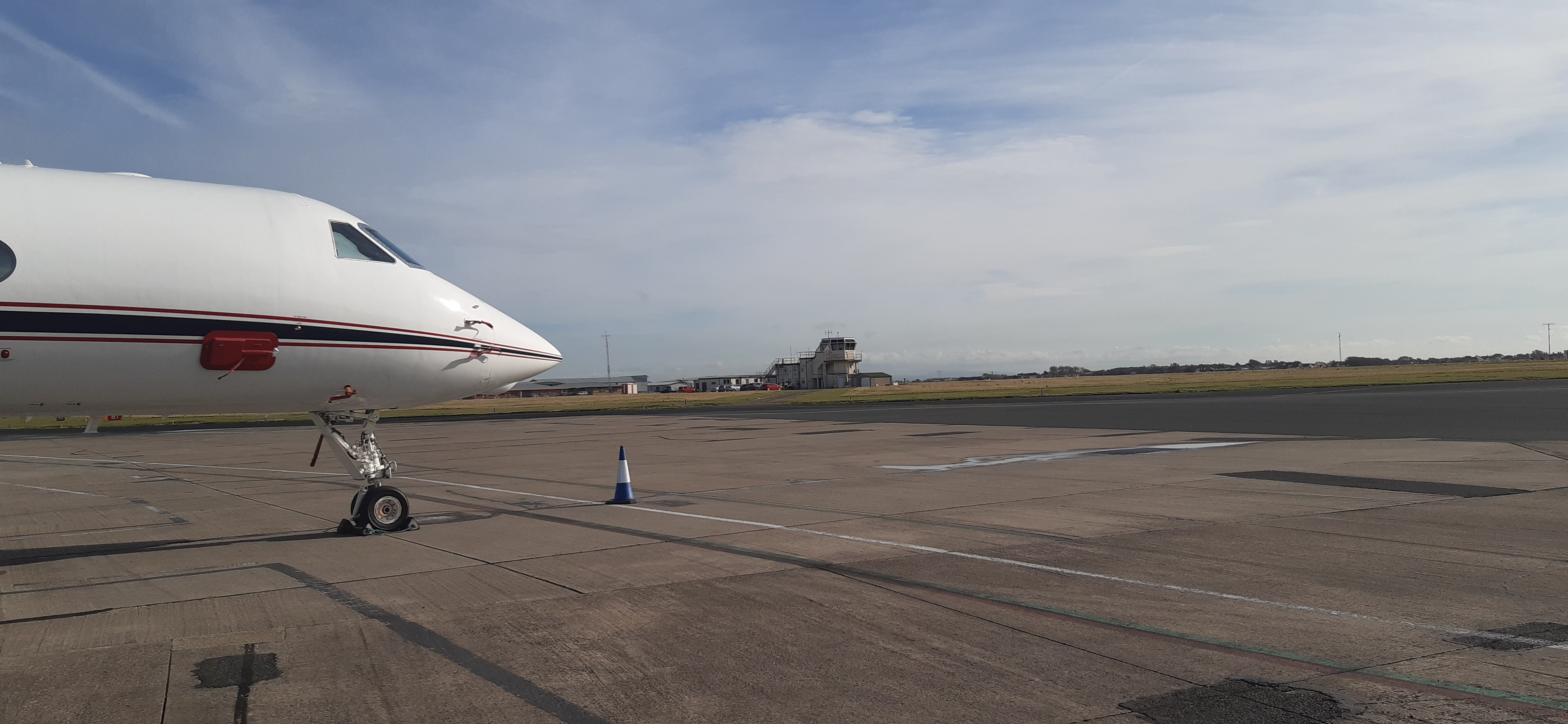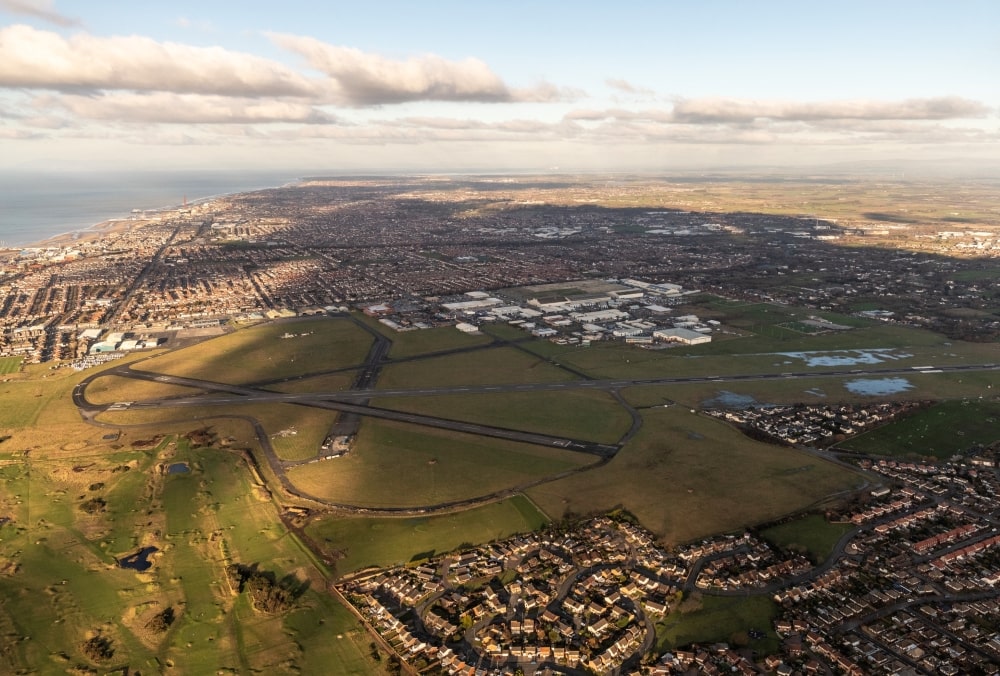Blackpool Airport managing director rules out return to commercial flights
“The brutal reality of airport economics doesn’t stack up for Blackpool in terms of the return of large-scale commercial operations."
Blackpool Airport is flying high two years into its 10-year master plan – but the return of commercial holiday flights is still being ruled out.
Even the restoration of regional passenger routes to destinations such as Northern Ireland and the Isle of Man remains a few years away, says airport managing director Steve Peters.
He is keen to sweep aside comparisons with other regional airports such as Teesside – pointing out it is more than £80m in debt, while Blackpool is making good progress in its journey towards financial sustainability.
The Blackpool Council-owned Squires Gate hub is instead shaping itself into the preferred option for high-worth individuals who arrive in their corporate jets for business meetings across Lancashire and the North West.
There are five pilot training operators on the airport site, a busy offshore helicopter terminal, and a company poised to base its corporate aircraft at Blackpool.
While all this may provide little consolation to those hoping to head to the Mediterranean for their holidays, it is securing the future of the airport which only a few years ago was heading for permanent closure.
Steve says: “The brutal reality of airport economics doesn’t stack up for Blackpool in terms of the return of large-scale commercial operations.
“So we are cutting our cloth accordingly and looking at small-scale regional scheduled domestic flights within the UK and across to Ireland and the Isle of Man. But that is four to five years away.”
However many of the key elements which were holding back development have now been resolved – not least the training and recruitment of air traffic controllers and recruitment of firefighters.
In previous years the airport had to close to traffic because of shortages in these key areas – but now it offers reliable air space and boasts 40,000 movements a year.
Plans to invest in infrastructure are also moving ahead, with proposals for new office buildings including a passenger handling facility for up to 45 people recently approved by Fylde Council. It is hoped that can be built by next spring.
Proposals to develop the east side of the airport with new hangers are also due to be decided soon. The scheme also includes a new air traffic control tower and fire-fighting facility.
Investment is only possible due to support from Blackpool Council, with exact figures kept under wraps but spending is significant.
The corporate market is one of the main drivers of success with owners preferring Blackpool over neighbours Manchester and Liverpool because it can offer more discretion, it is convenient for the motorway network and there are no slot constraints or limitations on parking aircraft.
The airport is central to the Blackpool Airport Enterprise Zone which is also developing fast. Plans to build a vast solar farm on part of the site will mean the loss of the smaller of the airport’s two runways, but Steve reiterates there is no threat to the main 1.8km runway.
He said: “There is no threat to the main runway and it won’t be shortened either. It can take the Airbus A320 family of aircraft which carry up to 180 passengers.
“And we will be seeing the Red Arrows back next year as their base for the Southport Air Show. They didn’t use us this year due to the weather forecast but we have resolved that!”
The Red Arrows and other participants in Blackpool’s own annual two-day air show also use Blackpool Airport as their base, helping to attract one of the biggest crowds of the summer season to the resort.
All these elements are adding up to an optimistic future for the air hub, and while it will be some time before it breaks even, figures show at the end of March this year the business was 41 per cent ahead of financial forecasts.
Steve said: “As a team, we are confident we are heading in the right direction. We have set out our 10-year plan to the shareholder (Blackpool Council) and we are starting to deliver on that. And that is instilling confidence in our shareholder and our customers.
“None of this is going to just land on our doorstep. We are going out to find the opportunities and then delivery can take a long time. But it is worth it.
“All our team is working very hard to achieve this and we are all invested in the success of this airport. The next biggest steps going forward will be the development of airport east which includes the new air traffic control tower and fire facility.”
The airport is considered crucial to growth not just in Blackpool, but the whole of Lancashire.
In its Business Manifesto, the North and Western Lancashire Chamber of Commerce says “easy access to air travel is vital for conducting business on a global scale”.
It adds: “Investing in a regional airport infrastructure enhances Lancashire’s overall transportation network. It improves accessibility, reduces travel times, and enhances the region’s competitiveness, attracting investment and business relocation.”
There's lots of ways you can support our work as The Blackpool Lead, from a one-off donation, to a monthly payment through to shopping for The Lead branded merchandise too. It all helps support our independent, in-depth, journalism.
The Blackpool Lead is now on Substack.
Become a Member, and get our most groundbreaking content first. Become a Founder, and join the newsroom’s internal conversation - meet the writers, the editors and more.





